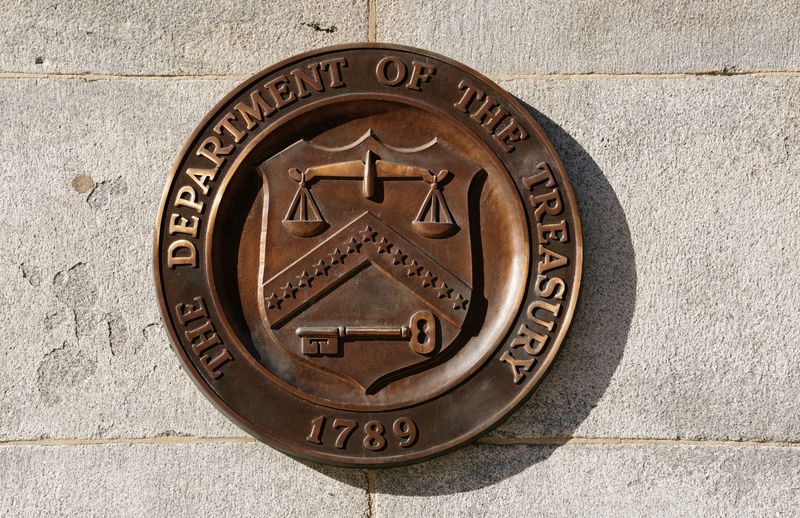By Nichola Groom and Ernest Scheyder
(Reuters) -The U.S. Treasury Department said on Thursday it would allow some mining companies to access a tax credit aimed at boosting American production of solar panels, lithium-ion batteries and other clean energy components, a shift in position after industry pressure.
The move reflects the growing realization in Washington that efforts to combat climate change will be moot unless the U.S. boosts its production of lithium, cobalt, and other critical minerals and curbs reliance on China and other overseas rivals.
Washington last December issued proposed rules for manufacturers to access the so-called 45X tax credit, created by President Joe Biden's 2022 climate change law, the Inflation Reduction Act, which offers a 10% production credit for U.S.-made products.
Those draft rules excluded raw materials from the production costs in favor of processing. For example, the mining of lithium would not have received the credit, but the processing of that lithium into a form usable to build a battery would.
The mining industry cried foul, noting that processing is impossible without first extracting a mineral.
Citing "feedback from stakeholders," the Treasury Department on Thursday reversed itself, saying that the "material costs and extraction costs" would be eligible for the tax credit under the final 45X rules, "provided certain conditions are met."
"The Biden-Harris administration understands how important onshoring the production of critical minerals is to developing secure, clean energy supply chains," Wally Adeyemo, the deputy Treasury secretary, told reporters on a call.
"This will not only help incentivize additional mining, but will mean that mining that already exists is more profitable and they can make greater investments in those mines," he said.
The final rules stipulate that the credit can only be obtained once an "eligible component" is created, essentially favoring mining companies that own processing facilities. The mining would have to take place in the United States, officials said.
"The action of extraction alone does not produce an eligible component," the Treasury Department said in the final rule, which ran to 177 pages.
That may help Sibanye Stillwater (NYSE:SBSW), which mines and processes palladium in Montana and had pushed for the 45X expansion to offset cutthroat Russian competition. But several proposed U.S. nickel mines, for example, would not be eligible because the U.S. does not yet have a nickel smelter.
Senator Jon Tester, a Montana Democrat who pressured the Treasury Department for months to change the rule, said the move will help Sibanye's operations in his state and "strengthen our supply chains and our national security."
Ali Zaidi, the White House national climate adviser, gave the hypothetical example of a lithium hydroxide processor that also runs a lithium mine. That company would be eligible for a 10% per metric ton credit for the mining and another 10% per metric ton credit for the processing, he said.
"This is absolutely a game changer for our ability to lean into mineral security," said Zaidi.
The credits would begin phasing out in 2030 and end after 2032 for clean energy components. Critical mineral credits will not phase out.

The National Mining Association, whose members include mining companies that do not process metals, said it appreciated the updated rules but was disappointed they were linked to processing.
"Treasury's decision to limit the credit to those producers who also refine materials will prevent many important projects from benefiting from the credit as Congress intended," said Rich Nolan, the trade group's CEO.